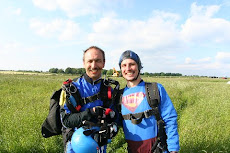Although its unusual, Silverton is not unknown as a surname. I suppose the best known current Silverton is probably Kate Silverton, the BBC newsreader. I dont know if any research has ever been done on any links between the village and holders of Silverton as a name, but I remember coming across a possible explanation for those who have town names as a surname some years ago.
Back in the seventeenth or eighteenth centuries, I cant remember which, the city of London took action against jewish traders who refused to trade on a saturday for religious reasons leading to many jews leaving London for the provinces and settling in market towns, often then taking the name of their adopted towns as a surname. Silverton in those days, of course had a market and I suppose its well within the realms of possibility that a displaced jewish trader could ended up in these parts. I dont know if current Silvertons have jewish connections but even if not directly, there could have been conversions down the centuries.
Maybe of course, there were no direct connections with the village at all and it was just that some distant ancestor passed through one day and decided that being called Silverton was a bit more distinctive then being called Smith and changed his name accordingly. An interessting subject for speculation.
Subscribe to:
Post Comments (Atom)








2 comments:
Place names, such as Silverton, when they occur as surnames, are known as 'locators', indicating that the holder of the name is descended from someone who once came from that place. Locators are one of four types of English surnames - the others are patronimics (father's name), occupations and descriptives. But they all go back much earlier than the 17th or 18th centuries. Surnames were in general use by the end of the 13th century and became universal following the Black Death in 1349.
Well, you did ask!
God points. Surnames go much further back, of corse, and I was only using on example. In this area the Land family, who came over with William the Conquerer gave their surname to Land farm as did the Fursdons in Thorverton with their holdings. I think Livings hayes had sinilar origins in a Flemish surname.
Post a Comment